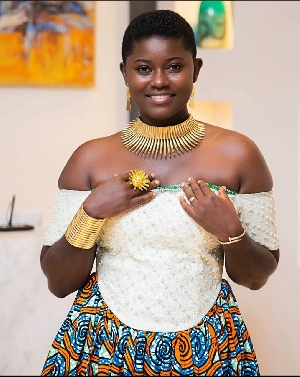The beneficiaries of the Korea International Cooperation Agency (KOICA) funded Green Economy in Biosphere Reserve (GEBR) have been presented with start-up equipment after their specialised training.
The over 200 beneficiaries drawn from 28 communities within the Bia Biosphere Reserve in the Western Region, underwent training in beekeeping, snail farming, palm oil extraction, mushroom production as well as business management and marketing in the first half of 2015 to improve capacity to run their own businesses.
The project is basically on a revolving fund scheme - It provides the farmers with start-up materials in-kind such as beehives, snail pens, mushroom sheds and palm oil processing machines.
Deductions will be made for repayment through an HFC Bank accounts opened for them before the handing over ceremony.
Key stakeholders from the District Assembly, traditional authorities, UNESCO, members of the Man And Biosphere (MAB) Committee, and the beneficiaries convened in Debiso, the Bia West District capital to hand over the equipment for the four businesses.
Mr Kingsley Asoa-Apimah, the District Chief Executive of the Juaboso District Assembly urged the beneficiaries to work hard to ensure the success and the sustainability of the project.
Mr Ebenezer Appah-Sampong, the Deputy Executive Director, Environmental Protection Agency (EPA) and a representative of MAB Committee as well as Mr Prosper Kwasi Nyavor, the representative of UNESCO, expressed the hope that the project would help reduce the poverty levels in the community.
Mr Samuel Kwabena Nibree, on behalf of the beneficiaries expressed gratitude to the organisers for coming to their aid, saying that, the project would serve as a regular source of income for their families.
The project, which is under the UNESCO MAB programme, is being implemented with the aim of conserving biodiversity, reducing poverty and contributing to sustainable development in sub-Saharan Africa through biodiversity-friendly businesses in biosphere reserves.
The three-year GEBR project, under the auspices of the KOICA, in partnership with the UNESCO, was launched in September 2013 and ends in November 2016.
The project is currently being implemented in three African countries, Ghana, Tanzania and Nigeria.
The KOICA has provided an amount of $430,000 to support activity implemented in each project area.
The Ghana project is being implemented by UNESCO in partnership with the MAB National Committee in the Bia National Park and the Bia Resource Reserve, which were designated as Ghana’s first biosphere reserve by UNESCO in 1983.
Click to view details



Business News of Friday, 21 August 2015
Source: GNA
Green Economy beneficiaries get start-up equipment
Entertainment















